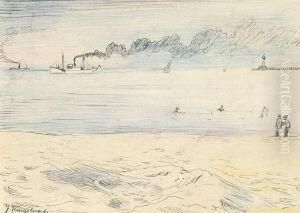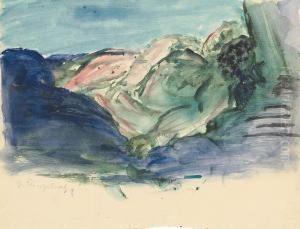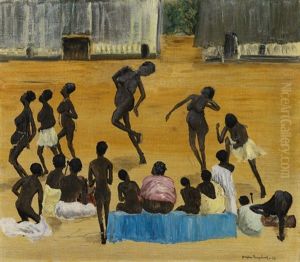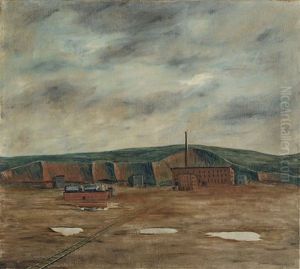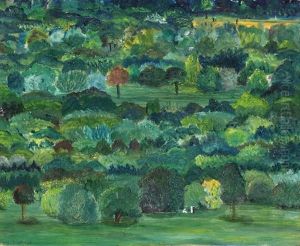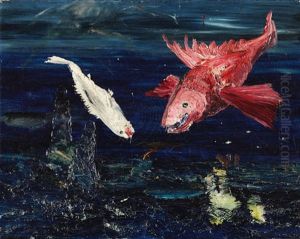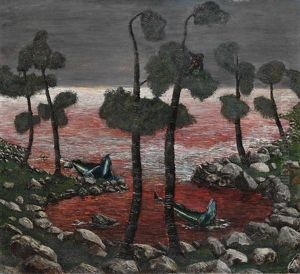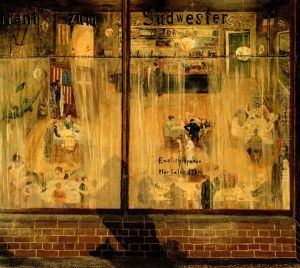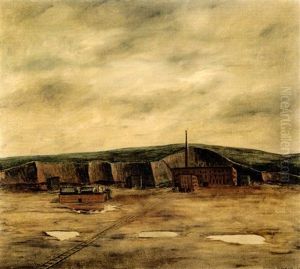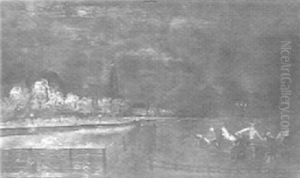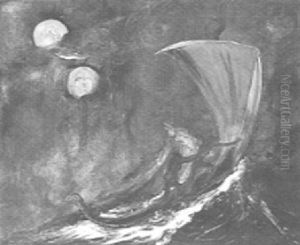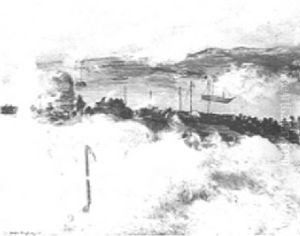Joachim, H.Botticher Ringelnatz Paintings
Joachim Ringelnatz, born Hans Bötticher on August 7, 1883, in Wurzen, Saxony, in the German Empire, was a multifaceted artist known primarily for his poetry and painting. His work, characterized by wit, humor, and a deep sense of irony, made him a unique figure in the German literary and art scenes of the early 20th century. Ringelnatz's early aspirations leaned towards painting, but financial constraints and the pursuit of a stable career led him to join the German navy, which significantly influenced his later works.
After his naval service, Ringelnatz settled in Berlin, where he began his literary career under the pseudonym Joachim Ringelnatz, a name he adopted from a character in his own narratives. His early works were marked by a playful use of language and an often whimsical approach to serious themes, which quickly garnered him a following. Throughout the 1920s, he became well-known in the cabaret scene of Berlin, performing his own texts, which ranged from deeply philosophical to outright nonsensical.
Ringelnatz's life and work were significantly impacted by the socio-political upheavals of his time. The rise of the Nazi regime in Germany led to a ban on his performances and publications, severely affecting his livelihood and creative expression. Despite these challenges, he continued to write, turning more towards painting in his later years as a means of subsistence and artistic outlet.
Joachim Ringelnatz died on November 17, 1934, in Berlin, from tuberculosis, a disease that had plagued him for years. His legacy, however, lives on through his extensive body of work, which includes poetry, short stories, and paintings. Ringelnatz is remembered not only for his contribution to German literature and art but also for his resilience and the ability to find humor and hope in the face of adversity. His works continue to be celebrated for their inventiveness, depth, and the unique perspective they offer on the human condition.
